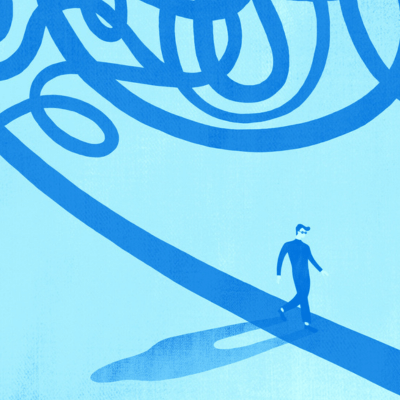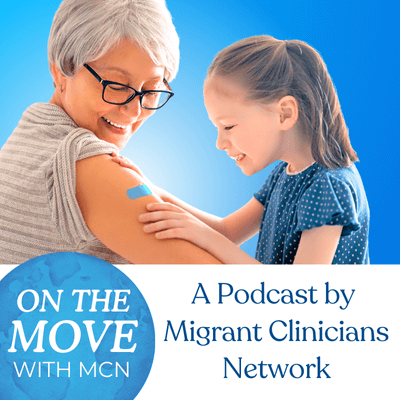Camila Velasquez, Health Network Associate, and Aracely, Her Patient with TB, Numerous Health Challenges, and No Connection to Care – And A Call to Action

While long-time supporters of MCN are well aware of the lifesaving work of Health Network, MCN’s award-winning virtual case management program, lesser known are the stories which drive the passionate Health Network Associates behind the scenes. These motivated case managers frequently share more than one commonality with the patients than might first meet the eye.
“I can't imagine what a program like Health Network would have meant to my parents when they first moved here from Colombia with three children,” Camila Velasquez, a Health Network Associate, recently admitted. “I remember most times just having my mom do home remedies to nurse us back to health or lecturing us to not get into too much trouble because we could get hurt and we did not have health insurance at the time. But now I know that there are resources such as community health centers, financial assistance such as sliding fee scales, and charity care.”
Velasquez, like her Health Network colleagues, has specific areas of focus in her work advocating for and assisting her patients. Velasquez originally worked exclusively with prenatal asylum seekers. This year, she expanded her role within Health Network to serve as the lead for the Specialty Care Access Network, or SCAN, which gets specialty care for newly arrived asylum-seeking children. She frequently receives assignments of children with conditions such as epilepsy or Down syndrome, or ailments that require urgent medical attention. She works with the children’s parents, who are grappling with these serious struggles while also navigating a new health system, living in a new country, with limited support systems. She finds the children primary care, in addition to working with SCAN Champions – volunteer clinicians -- throughout the country to find the specialty care that the children need. Even when two patients have the same diagnosis, the particulars of their case require unique, individualized care plans and management strategies—often against a backdrop of considerable disparity, which has grown in recent years.
“All around the world, the cost of living has gone up, and we have noticed supply chain issues that came with the pandemic, a lack of resources, and understaffing,” Velasquez noted. “There is a huge disparity of the level of health care between the rich and the poor,” which existed before the pandemic – and now is heightened.
Velasquez believes that Health Network shines a beacon of hope for migrant patients, including the possibility of achieving health justice. One such case involved Aracely*, a toddler born with exstrophy in their bladder and colon, a pelvic malformation, gastroschisis, and a latent tuberculosis infection. After Aracely endured two failed surgeries, an ileostomy converted to a colostomy, and months-long tuberculosis treatment within her home country, she came to the United States to receive corrective surgery.
In spite of these considerable challenges, Health Network played a vital role in reversing course for her, according to Laszlo Madaras, MD, MPH, MCN’s Chief Medical Officer.
“This constellation of conditions is rare, about two to three in a million,” he said. “And our Health Network team got the SCAN champions involved and [the patient was] taken care of. Aracely is now in care with both pediatric specialists and a general pediatrician.”
Aracely is just one of countless children that Health Network has saved, but more is possible—with your help right now.
It’s the season of giving. December is National Giving Month, a time when many organizations count on generosity: of spirit, of time, and of course, of monetary support. Monetary support is particularly important; NonprofitSource, a digital marketing consultant for charitable nonprofits, estimates more than 30 percent of all such giving occurs in the month of December. Nearly a quarter of all American nonprofits raise the largest of these funds in the days before the start of the new year.
Which means that there is still time to make a difference today, if you so choose—and we hope that you do, because even as 2022 ushered in unexpected outcomes in the field of health justice on behalf of migrants, immigrants, asylum-seekers, refugees, and the clinicians who care for them, it also confirmed that the need for our work is far from over.
Amidst the repeal of Title 42, the emergence of the tridemic, and the continued climate crisis, our services have become more crucial than ever.
As we prepare to end 2022 and make an even bigger push for health justice in 2023, can we count on your support today?
Thank you for supporting health justice! Donate to MCN. Want to make a bigger impact? Share your donation on social media and tell your friends why you donated to MCN.
- Log in to post comments






